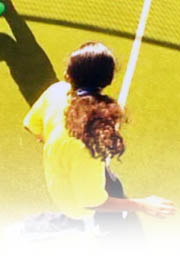You are here: Home > In the classroom > Differentiation
Differentiation

Gifted and talented learners need and enjoy variety and challenge. This requires that lessons be variously differentiated by:
- outcome (learning objective)
- task
- process (the method of teaching)
- pupil grouping
- tailoring the content of the lesson for the individual (personalised learning agenda)
- provision (access to specialists)
- choice and self-direction
- learning style.
These enrichment activities may be delivered by the school, by experts or be extra curricular. It is important however, to make them worthwhile and to include content and experiences that sufficiently stretch learners.
Relevant documents and links
- Ability grouping – Overview of some of the issues related to ability grouping.
- Differentiating the plenary upwards – Ten ways to differentiate plenary activities.
- Differentiation – Some suggested modifications that teachers can make in order to differentiate process and encourage the use of higher-level thinking processes.
- Grouping – Analysis of different ways of grouping students to make the strategy more productive and effective.
- Whole class teaching and learning strategies – List of learning and teaching strategies that can be employed for effective whole class teaching.
- Mentoring gifted and talented students – Reasons for mentoring G and T students as well as a key to successful mentoring.
- Planning checklist – Map of the issues to consider when planning lessons for gifted and talented students.
- Differentiation – Flash film on differentiating techniques.
- Differentiation PowerPoint to match Flash animation – Powerpoint presentation (to match flash animation) on differentiation.
- Excellence and Enjoyment: Learning and teaching in the primary years – The Primary Strategy.


